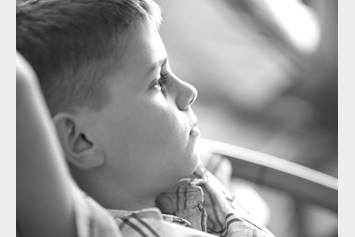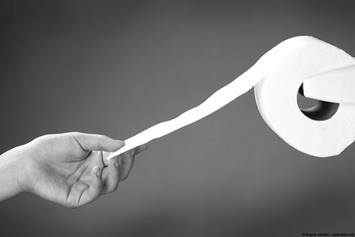Enuresis (Bedwetting)
Enuresis, or bedwetting, is when a child who is old enough to control their bladder accidentally wets the bed or their clothes. It can happen at night or during the day. Causes include anxiety, constipation, and genetics. Many children outgrow it, and there are treatments available to help.
What Is Enuresis?
Enuresis (en yur EE sis) is the medical term for wetting the bed. It means a child urinates without meaning to. Bed wetting at night is called nocturnal enuresis. Nocturnal enuresis does not mean there is a medical problem. Children do not wet the bed on purpose. Bed wetting is not a behavioral problem. No one can control what happens when sound asleep. Some children have daytime bladder issues that can contribute to problems during the night.
Nighttime bed wetting is fairly common. About 15 percent of all 5-year-olds, 7 percent of all 8-year-olds, and 3 percent of 12-year-olds wet the bed. About 99 percent of children who wet the bed will outgrow it by the time they are 15 years old. Children with ADHD may outgrow bed wetting later than their peers.
What Causes Enuresis?
- Difficulties waking from sleep.
- Slower development of the central nervous system which can allow the bladder to empty at night.
- Kidneys that produce more urine when they are asleep.
- Having relatives who wet the bed growing up.
If You Think Your Child Has Enuresis
If your child is 8 or 9 years of age and continues to have nighttime wetting, make an appointment with his primary care provider.
The Treatment Plan
Nocturnal enuresis is not a medical problem. Treatment usually means helping a child to form habits that will allow him to control his need to urinate. Here are some things you can do to help:
- Limit fluids 2 hours before bedtime.
- Make sure your child goes to the bathroom right before he goes to bed.
- Avoid caffeine.
- Never punish your child for wetting the bed. A child needs assurance that bed wetting is normal. It is not because he has done anything “bad” or wrong.
- After a certain age, medicine can sometimes be prescribed to help a child make less urine overnight. This does NOT cure bedwetting. Talk to your doctor to see if this medicine might help your child.
Bedwetting Alarm
At about 9 or 10 years of age, we suggest using a bedwetting alarm. The alarm consists of a clip-on sensor that attaches to the child’s underwear. The alarm is triggered by moisture. It sounds a loud alarm or a vibration to the body in an attempt to wake the child to get up and urinate. The bedwetting alarm slowly teaches the brain to respond to messages from the bladder that come during sleep. In the beginning, parents may need to help their child wake up when the alarm sounds.
Here are some resources for buying a bedwetting alarm:
Follow-Up Care
Nocturnal enuresis can be hard to treat. Praise your child because he is trying to be dry, not just because of dry nights. If your child begins having problems with day time wetting, please discuss these issues with his doctor.
How the Kidneys and Bladder Work
You can use this information to explain to your child:
- Blood flows through the kidneys.
- The kidneys filter the blood to make it clean.
- The waste products and water that the body does not need go into the bladder. This is urine.
- When the bladder gets filled with urine, signals are sent to the brain. Then the child feels the need to go to the bathroom while awake.
Recommended Reading
- Seven Steps to Nighttime Dryness: A Practical Guide for Parents of Children with Bedwetting (Paperback) by Renee Mercer
- Waking Up Dry: A Guide to Help Children Overcome Bedwetting (Paperback) by Howard J. Bennett, MD, FAAP
- No More Bedwetting: How to Help Your Child Stay Dry (Paperback) by Samuel J. Arnold
Helping Hands Patient Education Materials
Written and illustrated by medical, nursing and allied health professionals at Nationwide Children's Hospital, Helping Hand instructions are intended as a supplement to verbal instructions provided by a medical professional. The information is periodically reviewed and revised to reflect our current practice. However, Nationwide Children's Hospital is not responsible for any consequences resulting from the use or misuse of the information in the Helping Hands.
HH-I-34 | ©1980, revised 12/15, Nationwide Children’s Hospital



